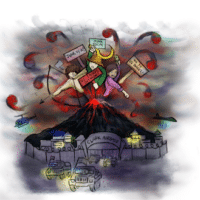-
How do you resist neo-fascism?
Conceptual clarity and shrewd maneuvers are necessary to combat neo-fascism, a powerful social movement from above.
-
U.S. to be ready for war on China by 2027: Navy Chief
On Tuesday, Oct. 15, a large-scale military exercise named Kamandang commenced in the Philippines. The exercise, scheduled to run until Oct. 25, involves over 2,300 military personnel from the United States, the Philippines, Japan, South Korea, Australia, and Britain.
-
Bayer’s “backward” claim: A bid to reap control of Indian agriculture
Bayer’s vision for agriculture in India includes prioritising and fast-tracking approvals for its new products, introducing genetically modified (GM) food crops, addressing labour shortages (for weeding) by increasingly focusing on herbicides and developing herbicides for specific crops like paddy, wheat, sugarcane and maize.
-
U.S. Pacific Fleet commander visits Sri Lanka to cement ties with new president
Admiral Steve Koehler, Commander of the U.S. Pacific Fleet, visited Sri Lanka on October 10 in the wake of the election of Anura Dissanayake, leader of the Janatha Vimukthi Peramuna (JVP) and its electoral front, the National People’s Power (NPP).
-
Han Kang’s Nobel Prize Award is a cry for Palestine
A brilliant, powerful writer, but clearly the literary dark horse in the race, Han Kang’s unexpected award is the closest the Nobel committee could get to acknowledging the Palestinian genocide.
-
Nobel Peace Prize winner: Gaza like Japan after U.S. atomic bombs
Toshiyuki Mimaki, co-chair of Nihon Hidankyo, the Japanese organization honored with the 2024 Nobel Peace Prize for its anti-nuclear activism, drew comparisons between the plight of children in Gaza and those impacted by the U.S. atomic bombings of Hiroshima and Nagasaki in 1945.
-
A stolen life: Remembering GN Saibaba, who the State kept imprisoned over a decade
For those who knew him, GN Saibaba was a staunch human rights activist, a beloved professor and comrade, and a doting husband. He breathed his last on October 12.
-
A year after the attack on NewsClick, journalists in India call for a united fight against assaults on independent media
Many former NewsClick employees are struggling to find an alternative job even after months of unemployment due to the vilification and fear mongering campaign launched by the ultra-right government in India.
-
A walk along the Baiyangdian Lake in the Xiong’an new area: The Fortieth Newsletter (2024)
On 1 October 1949, the People’s Republic of China was established. Seventy-five years into its revolutionary process, China has made rapid advances while still facing many challenges.
-
Seventy-Five Years of the Chinese Revolution
Tings Chak and Vijay Prashad take stock of seventy-five years of the Chinese Revolution.
-
How Australia helps the U.S. destabilize Asia
September 15 marked the third anniversary of the announcement of the AUKUS (Australia, the UK, the U.S.) agreement.
-
West Africa’s resistance against imperialism
WEST Africa, which had been largely under French colonial rule, never saw decolonization of the sort that India did.
-
Southern Command launches an attack on China and Russia in Latin America
Laura Richardson, leader of the U.S. military’s Southern Command, recently called for the development of a new “Marshall Plan”, aimed at Latin America to counter the growing influence of Russia and China in the region.
-
Cold War II: U.S. Congress passes 25 anti-China laws in 1 week, funds propaganda campaign
In what it called “China Week”, the U.S. House of Representatives approved 25 anti-Chinese laws over a few days, in bipartisan votes. Cold War Two fervor is reaching fever pitch in Washington.
-
Activists mark four years in jail under India’s UAPA without trial or bail
Umar Khalid and more than a dozen activists have spent four years in prison under India’s controversial Unlawful Activities Prevention Act (UAPA), with no trial or bail. The cases are widely seen as politically motivated efforts to suppress dissent.
-
A brief history of the JVP (Peoples Liberation Front) Sri Lanka
The beginning of the left movement in Sri Lanka goes back to 1935.
-
Anura Dissanayake wins: A closer look at Sri Lanka’s first Communist president
The Marxist Janatha Vimukthi Peramuna (JVP) leader’s campaign was built on sweeping reforms, tackling corruption and ensuring economic relief.
-
For China and Africa, U.S. hegemony a common target
The aftermath of the Forum on China-Africa Cooperation (FOCAC) is clear: Washington’s economic and diplomatic influence on the continent is set to wane even further.
-
China’s economic ascendancy in Africa threatens U.S. imperialism
China’s economic ascendency and the ensuing rivalry between Beijing and Washington, representing the world’s two largest economies, are being played out across the resource-rich African continent.
-
Philippines: Continuing history of resistance to U.S. military bases
In the coming days, the Filipino people will mark the historic termination of the Military Bases Agreement on September 16, 1991.




![Commander of the US Pacific Fleet, Admiral. Steven Koehler and Sri Lanka President Anura Dissayanake, October 10, 2024. [Photo: நான் இலங்கையன்]](https://mronline.org/wp-content/uploads/2024/10/1606ea33f2cf6cbcb3259a67bfa1a33fde64d3d7-200x200.jpg)



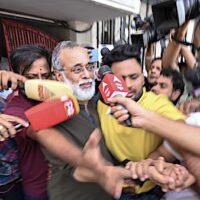
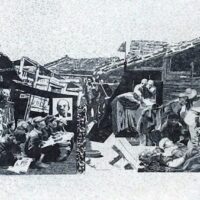
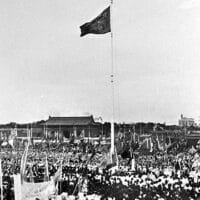
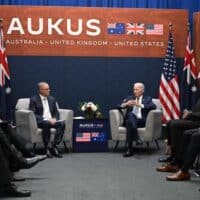



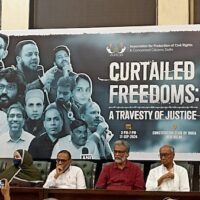

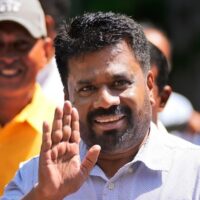
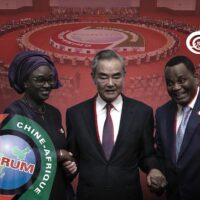
![The 2024 FOCAC Summit Opening Ceremony [Photo by Paul Kagame / Flickr / CC BY-NC-ND 2.0]](https://mronline.org/wp-content/uploads/2024/09/a7270c67e045d8e77e38cebeabbd3073ca6668c7-200x200.jpg)
